On X-Men '97, the Road to Xavier's Dream Is Paved With Good Intentions
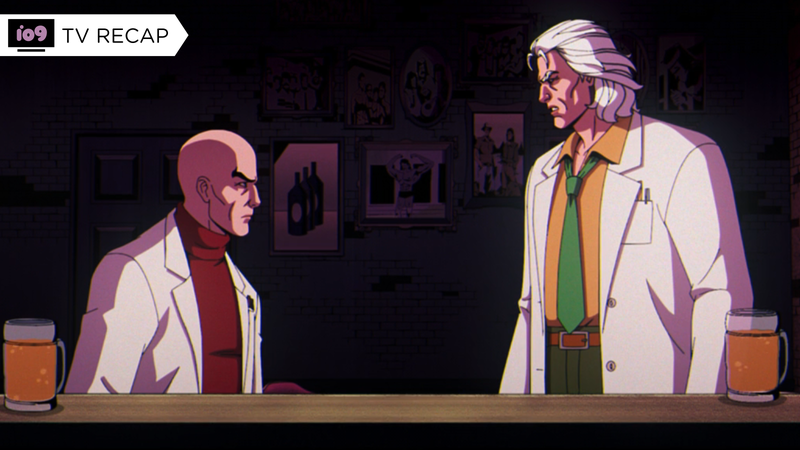
- Oops!Something went wrong.Please try again later.
And so, X-Men ‘97's largely successful first season has come to an end. What does it have to say about the state of mutantdom in the face of the overwhelming threat our heroes have thrown down against these past three episodes in Bastion? Honestly, not all that much. But it does have a lot to say about Charles Xavier, even if it might not mean to.

“Tolerance Is Extinction, Part 3” never really quite manages to live up to the sharp bite of its title, as the battle between the X-Men and Bastion comes to a head after they’ve all realized that it’s probably a remarkably silly idea to be at each other’s throats instead of stopping the apocalypse. Ultimately, yes, the day is saved, humans are proven to still be a terrible neighbor species in spite of this, and—more on this later—our heroes don’t really get the time to sit down and unpack the ideological thrust this trifecta of episodes threw down, because the X-Men are busy doing what they do best: sacrificing themselves for a world that hates and fears them, but not really sacrificing themselves either, because since when did seeming death ever stop them?
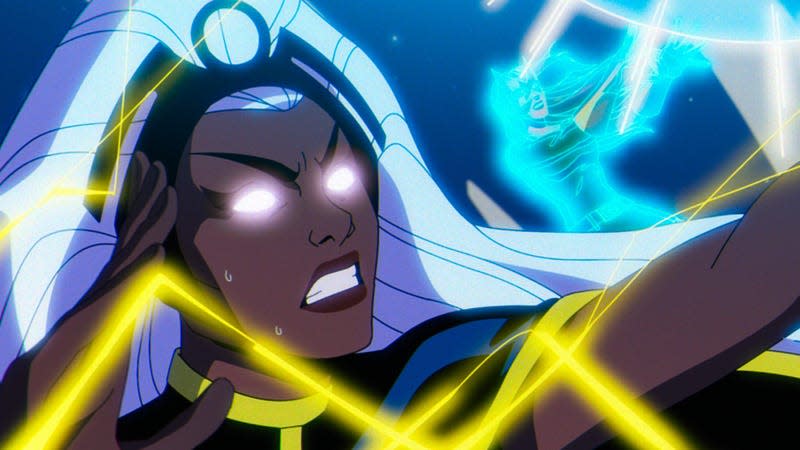
The finale largely punts grappling with the actual weight of which vision of mutant future is worth fighting for—Magneto’s united power, born from years of learning horrifying lesson after horrifying lesson about what appeasing your oppressor gets you; or Charles Xavier’s open hand, no matter how many times it’s batted away—for the already confirmed season two, and perhaps even further along than even that, given the time-twisting cliffhanger the episode concludes with. But in getting to that twist, X-Men ‘97, perhaps unintentionally, throws a lot of weight behind one of these ideologies compared to the other... even as most of the episode loosely praises the opposite.
Much of the bumper-sized “Tolerance Is Extinction, Part 3” can be split into two twisting threads. One half sees the X-Men teams reunite and face an increasingly evolving Bastion on a united front, beating him into submission as he tries to take over Asteroid M and plunge it into the Earth as a final act of vengeance—first with their mutant might, and then with their words, preaching Charles’ tolerance and embrace of their enemy as a fellow outcast begging to be understood and accepted. Does it work? Well, they certainly do beat him up an awful lot, but our first exposure to the flaw in Xavier’s dream here immediately renders that moot, when a conglomerate of world leaders fires a salvo of deadly missiles at Asteroid M that do little more than make doom inevitable, taking Bastion and most of the X-Men’s chances of stopping the base’s descent with it. “Humanity would rather die than have kids like us,” Bastion growls in his final words.
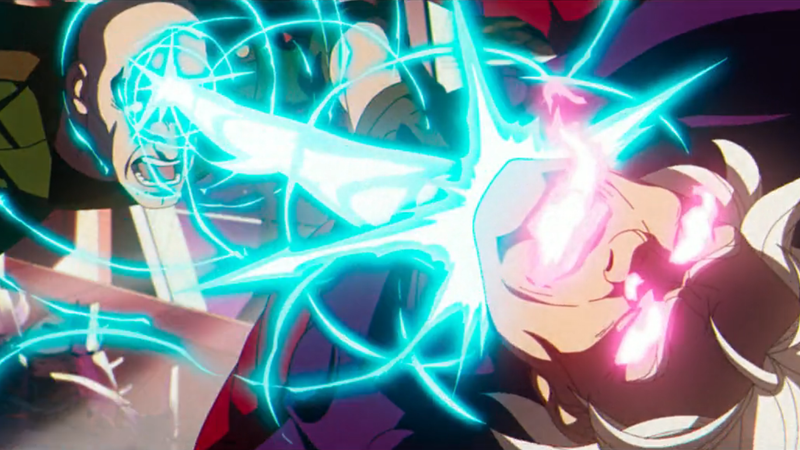
Meanwhile, in the other half of this narrative about tolerance, we are in the psychic planescape of Magento’s mind, where Charles—even after being momentarily stopped from mentally stripping Magneto’s mind by Cyclops last week—decides that it’s once again time to horrifically violate someone’s entire existence to get what he wants. That is, admittedly, a very mean way of putting it, considering Charles is doing this because the alternative is the destruction of Earth. But! It is what Charles does to Magneto: thrusting his mind into his would-be brother’s in an act that renders him as looking twisted and horrifying as he blasts him with psychic power. Charles takes Magneto back to the days of their youth, where they first revealed to each other that they’re mutants. But it’s more than a memory; Charles has turned it into a little mental arena for him to psionically blow Magneto’s brains out and put them back together bit by bit that’ll make him more amenable to helping Charles and the X-Men. In this moment, Magneto doesn’t know who he is, and he doesn’t know who Charles is, so total is whatever Charles is doing to his mind. It’s very telling that in this mental flashback, before we and Magneto alike realize what’s going on, we see a memory as the two men joke that bending metal to your will is much easier to do than bending someone’s mind, but Charles makes the latter almost distressingly easy. Magneto is largely helpless and horrified to stop it while Charles first psychically puppeteers his body to stop Magnus’ EMP field over the Earth, and then as Charles psychically lectures a man who’s escaped two genocides that he just needs to learn to let people in.
On the one hand, Charles telling Magnus to go home and be a family man—we get a very brief moment in this vision, depicting Magneto’s trauma as a roiling ocean, of a shadowed shot of Rogue, Polaris, the Scarlet Witch, and Quicksilver on a boat reaching out to him—is incredibly funny, given that much of this season prior to Genosha’s destruction was about Magneto taking the X-Men as a family of his own, after Charles left for Shi’ar space. On the other, Charles is doing this after psychically busting the door to Magneto’s head in and blasting his friend’s brains out to the point he can’t remember what his parents’ faces look like. “You were a boy when you lost your family, that is why you can’t see their faces,” Charles eventually tells Magneto as he mutters to himself that he can’t remember his parents, even after he’s lectured him that his destructive path as Magneto leaves bodies in its wake. But is that really the cause, or is it because Charles has just so completely and utterly shattered Magneto’s mind in psychic desperation—an act of violence deemed necessary to save the day, the same thing that Charles is lecturing Magnus for—that it’s a wonder he can even string a sentence together inside his own mind?
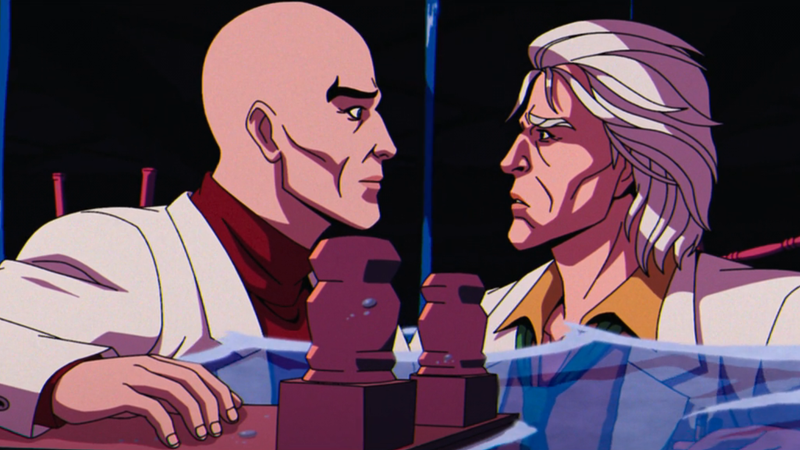
For what it’s worth, and no matter how X-Men ‘97 deftly portrays these scenes with Charles and Magneto, especially the pained emotions wrought all over the face of the latter, Xavier’s terrible gambit works. At the most dramatically potent time possible, Magneto remembers who he is—full name this time, no longer just simply Magnus, but Erik “Magnus” Lehnsherr—and who he has frequently been inspired to be in spite of all he’s suffered, and he and Charles awake from their psychic tête-à-tête to help the X-Men push back Asteroid M from its collision course with Earth... only for the asteroid to seemingly blip out of existence. For all Charles’ words about Magneto’s road being paved with the bodies of the dead, the X-Men sure do enjoy looking like they’re a bunch of corpses to humanity after saving their lives. Even if we know they’re not dead, because, well, they’re the X-Men. That’s simply not what they do.
Six months flash by, however, as we see mournful tributes pile up around the ruins of the Xavier Mansion, and we’re hit with the obvious—thanks to a well timed return from Bishop, who helpfully informs Forge that the X-Men aren’t dead, but lost to time. Scott and Jean have been thrust into the far future, for a date with destiny ripped right from the comics: the chance to see Nathan grow up in the time they had to deposit him in, and encounter the mysterious Mother Askani. Meanwhile, the rest of the team, Erik and Charles included, have been thrust into the ancient past, for a comic encounter of their own in the young En-Sabah Nur, better known as he is in the present, glimpsed briefly in the episode’s mid-credits scene in the ruins of Genosha: Apocalypse.
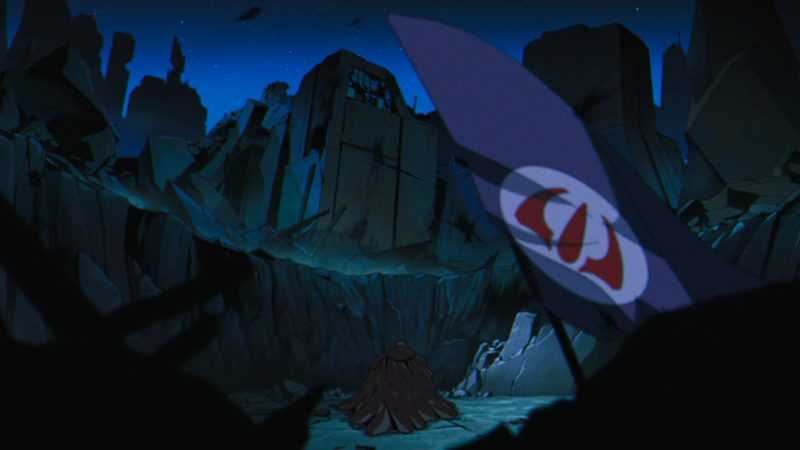
Which means all the very interesting ideas “Tolerance Is Extinction” has had over these three parts—about just how alike Charles and Erik are in their methods when their backs are left against the wall, or how humanity will only valorize mutants when they’re dead, or even if the lessons Genosha and Operation Zero Tolerance gave our heroes have really been learned—are largely left pushed aside for X-Men ‘97's sophomore season to handle. The episodes presented as they are still remain largely a bit of ideological set up against the backdrop of superheroic spectacle. For now, Erik and Charles’ ideological debate is only settled in so much as one fire got put out, but who’s to say the next fire won’t spark some old debates aflame once more? Fittingly for our time-strewn X-Men, it will be time that tells if ‘97 will return to this ideas even if it considers the matter of Bastion’s threat now “closed,” especially as it’s already racing to set up new conflicts to fling our heroes into before they even get a chance to breathe. But that a show like this has even begun to engage with these ideas about the X-Men is more than promising enough to get us tuning back in whenever it does.
X-Men ‘97 is streaming now on Disney+.
Want more io9 news? Check out when to expect the latest Marvel, Star Wars, and Star Trek releases, what’s next for the DC Universe on film and TV, and everything you need to know about the future of Doctor Who.

